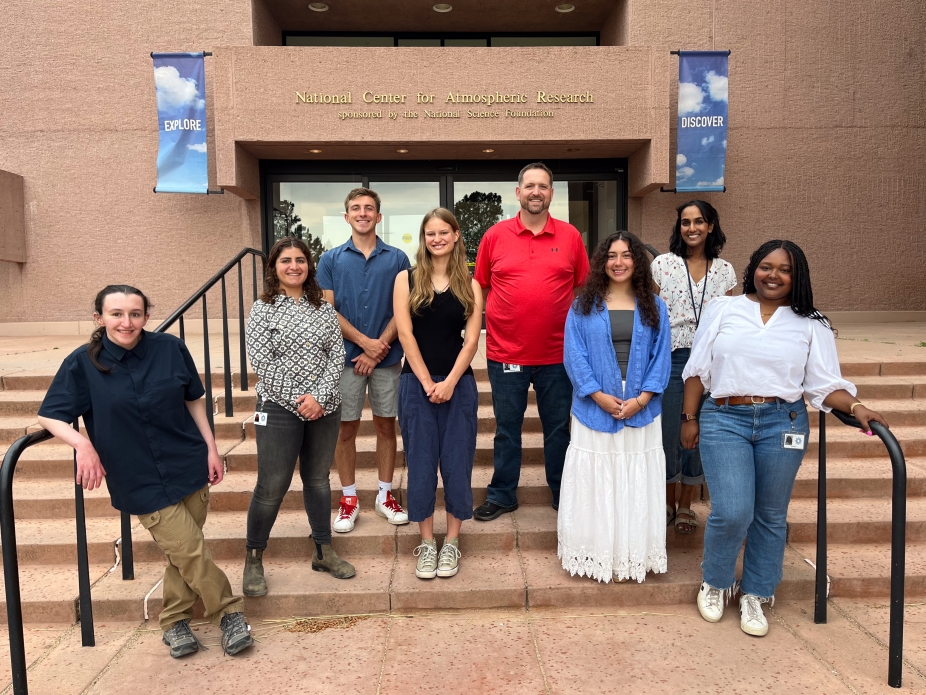2024 NESSI Interns

2024 NESSI Cohort
This summer, interns from universities across the United States and Puerto Rico participated in research projects at NSF NCAR, exploring various topics in Earth system science. Their work spanned multiple NSF NCAR laboratories, contributing to critical areas such as hurricane modeling, drought analysis, air quality research, climate change impacts, and hydrological studies.
Two interns participated in an interdisciplinary research project centered on tropical cyclone rapid intensification and risk communication to the public. They were mentored by scientists in the Mesoscale and Microscale Meteorology (MMM) Laboratory.
Another intern in the Research Applications Laboratory (RAL) analyzed how drought and excessive moisture affect the Western U.S. under future climate projections, focusing on aridification and extreme rainfall events.
Air quality was a key study area in the Atmospheric Chemistry Observation and Modeling (ACOM) Laboratory, where an intern compared different ozone measurement instruments. It analyzed atmospheric data from locations with high pollution levels.
In the Climate and Global Dynamics (CGD) Laboratory, research focused on understanding the variability of the El Niño-Southern Oscillation and its influence on North Pacific precipitation and atmospheric moisture patterns.
Other projects examined the role of wetlands in flood mitigation, integrating hydrological modeling to assess their impact on downstream communities. They also examined the use of agroforestry as a climate adaptation strategy through biophysical modeling and remote sensing.